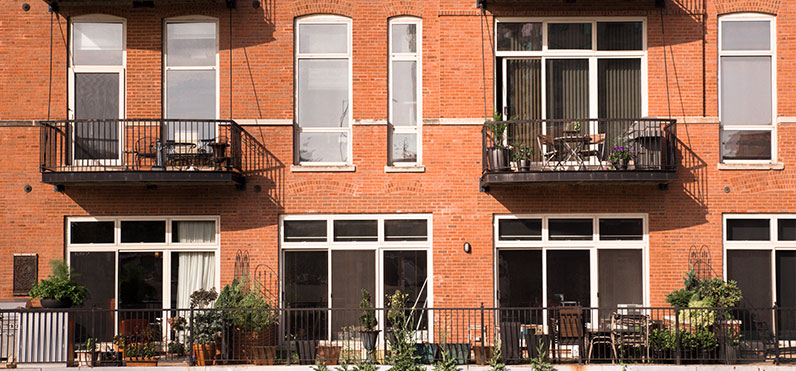The Appeals Court has issued a decision indicating that the “pay-to-play” principle associated with a unit owner’s ability to protest common expenses may not apply to fines and late fees imposed by a condominium board. The ruling appears to have carved out an exception to the holding in the seminal Blood v. Edgar’s decision, where the Appeals Court held that a unit owner taking exception to common expenses must first pay the amount before challenging it.
The Appeals Court has issued a decision indicating that the “pay-to-play” principle associated with a unit owner’s ability to protest common expenses may not apply to fines and late fees imposed by a condominium board.
In Trustees of the 10 Porter Street Condominium Trust v. Cerda, 2021 WL 28224 (January 5, 2021), the Appeals Court – while affirming the lower Court’s ruling that unit owners could not challenge special assessments without first paying same – found that the pay-under-protest principle did not apply to fines and late fees, and vacated summary judgment decisions insofar as they awarded the condominium board these sums.
The 10 Porter Street Condominium is a six-unit residential condominium located in Salem. The two defendants, Carmen Berges and Elizabeth Cerda, are mother and daughter – each owning their own respective units at the Condominium. The trustees “are either the owners, or closely aligned with the owners,” of the four remaining units.
On December 15, 2016, the trustees issued a special assessment of $140,000 for “immediate deferred maintenance work.” The defendants were told that their shares – $22,512 and $19,502 respectively – were due in two weeks. Additionally, in late October 2016, the trustees had begun fining the defendants $50 per day for installing unauthorized cameras in the common areas. The defendants asserted that the cameras were necessary to guard against the harassing and intimidating conduct of the other unit owners and trustees. Indeed, there was clearly an acrimonious relationship between the two sides – as there had been at least six separate Superior Court lawsuits involving the parties since 2007.
The defendants paid neither the assessment nor the fines and late fees, and the condominium board filed suit against them to recover the unpaid charges in March of 2017. The Superior Court, relying on the Blood decision, allowed the condominium board’s summary judgment motions – finding that “Cerda and Berges are personally liable for common area expenses, including late charges, fines, penalties, interest, and collection costs…Where there has been no prior judicial determination that these assessments are illegal, even if they dispute the amount owed, Cerda and Berges are not entitled to take the self-help remedy of withholding payment of these assessments.”
By the time judgment entered in the lower court, the fines and late fees had mushroomed to more than $60,000 for each of the two defendants – representing roughly two thirds of the total judgment. The defendants contended that it would not be possible for them to pay the challenged fees and assessments under protest without selling their units. (For context, the defendants had paid $130,000 and $102,945 for their units respectively). It appeared that the late fees had been sporadically issued in varying amounts. Furthermore, at one point during the litigation, the trustees – in successfully thwarting the unit owners’ attempt to obtain an injunction – had indicated to the Court that they would take no further action against the defendants until summary judgment motions were decided. However, the fines and late fees continued, apparently unabated by the representations the board made to the Court.
The trustees’ conduct smacked of bad faith. As noted above, the trustees had required that the defendants pay their substantial shares of the special assessment within two weeks. Yet the trustees themselves apparently did not pay their shares of the $140,000 assessment until sixteen months after the January 1, 2017 deadline that had been imposed on the defendants.
Under G.L. c. 183A, § 6, common expenses are to be assessed, at least annually, against all unit owners. Unit owners are responsible for all sums asserted as each unit owner’s share of common expenses, including “late charges, fines, penalties, and interest assed by the organization of unit owners and all costs of collection including attorneys’ fees, costs, and charges.” The statute further provides that the organization of unit owners may assert a lien on a unit for unpaid common area expenses, which may ultimately lead to a court order for the sale of the unit.
More than twenty-five years ago, the Appeals Court had found that “a condominium unit owner may not challenge the legality of a common expense assessment by refusing to pay it.” Blood v. Edgar’s, Inc., 36 Mass. App. Ct. 402, 410 (1994). In Blood, a unit owner asserted that the trustees of the condominium had improperly assessed as a common expense the cost of operating a unit rental program. The Appeals Court held that:
[i]n view of the importance placed by the Legislature on prompt collection of common expenses, we conclude that in the context of the condominium act, absent a prior judicial determination of illegality, a unit owner must pay its share of the assessed common expenses. Self-help remedies, such as withholding condominium common expense assessments are not available.
Id. at 405. This rule is intended to protect the financial integrity of the condominium association. Trustees of the Prince Condo. Trust v. Prosser, 412 Mass. 723, 725-726 (1992). In that case, the Supreme Judicial Court provided that “[w]hatever grievance a unit owner may have against the condominium trustees must not be permitted to affect the collection of lawfully assessed common area expense charges.” Id. In announcing that “a condominium unit owner may not decline to pay lawful assessments”, the SJC noted that “[a] system that would tolerate a unit owner’s refusal to pay an assessment because the unit owner asserts a grievance, even a seemingly meritorious one, would threaten the financial integrity of the entire condominium operation.” Id. at 726.
The Appeals Court, in 10 Porter Street, found that “[t]he rationale behind the pay-under-protest principle does not apply to these charges.” The Appeals Court noted that the subject fines were not monthly fees based upon the annual operating budget. Further, these fines were not special assessments imposed to address unanticipated one-time expenses. As such, the Appeals Court reasoned that the fines and late fees were not necessary to keep the condominium solvent.
The Appeals Court additionally pointed to the language of G.L. c. 183A, § 10(b)(5), which requires that fines be “reasonable.” The Appeals Court determined that “[u]nder the unique circumstances of this case, the defendants should not have been required to pay the accruing, unsubstantiated fines in order to challenge them.”
While the Appeals Court’s decision will certainly lend credence to a unit owner’s contention that he or she is not required to pay a fine before challenging it, unit owners would still be well advised to follow the pay-under-protest principle.
As an initial matter, the 10 Porter Street decision is unpublished and therefore, while it can be cited for its persuasive value, it does not constitute binding precedent. Furthermore, the Appeals Court made it clear that the fines were required to be “reasonable” and determined that there were questions of material fact concerning the reasonableness of the fines. The Appeals Court also found that it was improper for the condominium board to continue to levy fines and late fees after it had represented to the lower court that it would cease imposing these sums on the defendants.
Accordingly, if a condominium board imposes a reasonable fine – in other words, a fine that does not appear arbitrary or levied out of spite, acrimony or bad faith – there is likely a strong chance that a court would abide by Blood and determine that the “pay-to-play” principle applies. A unit owner, intending to rely upon 10 Porter Street under these circumstances, may not only end up having to pay the fine, but also would likely have to pay the board’s legal fees incurred in connection with having to collect it.


